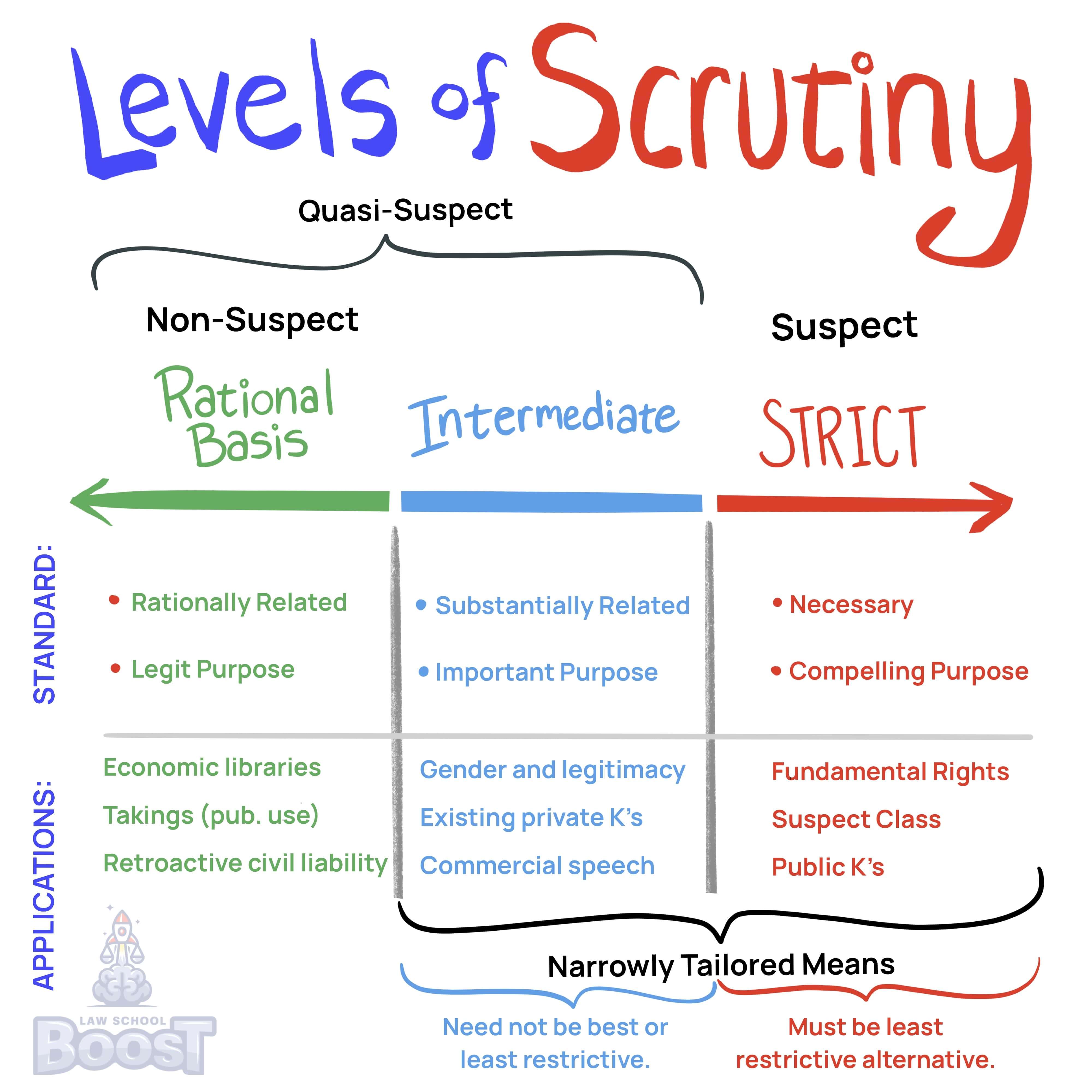🇺🇸
Constitutional Law • Voting
CONLAW#080
Legal Definition
Use of race in drawing election district lines must meet strict scrutiny.
Plain English Explanation
Every 10 years, states must redraw the boundaries of their election districts to account for population changes. When doing this, the use of race as the primary factor in drawing a district must overcome strict scrutiny - the highest level of review by courts. This means the state needs an extremely compelling interest and the lines must be narrowly tailored to achieve that interest.
The main reason is to root out racial gerrymandering that harms minority voting power. For instance, packing minorities into a single district to reduce their influence everywhere else. Strict scrutiny helps determine whether district lines drawn for unfair racial reasons as opposed to natural communities of interest. It balances letting states organize districts while protecting voting rights. The overriding concern is preventing creative line drawing that purposely discriminates against racial groups.
The main reason is to root out racial gerrymandering that harms minority voting power. For instance, packing minorities into a single district to reduce their influence everywhere else. Strict scrutiny helps determine whether district lines drawn for unfair racial reasons as opposed to natural communities of interest. It balances letting states organize districts while protecting voting rights. The overriding concern is preventing creative line drawing that purposely discriminates against racial groups.
Hypothetical
Hypo 1: Hypofornia decides to redraw its election districts. The state legislature explicitly states that the new lines are drawn to increase the voting power of the racial minority group, aiming to ensure their representation. Bob, a citizen, challenges the new district lines, arguing they were unfairly drawn based on race. Result: The court applies strict scrutiny to review Hypofornia's redistricting plan. To justify the use of race in drawing the district lines, Hypofornia must show a compelling interest, such as rectifying past racial discrimination, and that the plan is narrowly tailored to achieve that interest. If Hypofornia meets these criteria, the plan may be upheld. Otherwise, it could be deemed unconstitutional.
Visual Aids



